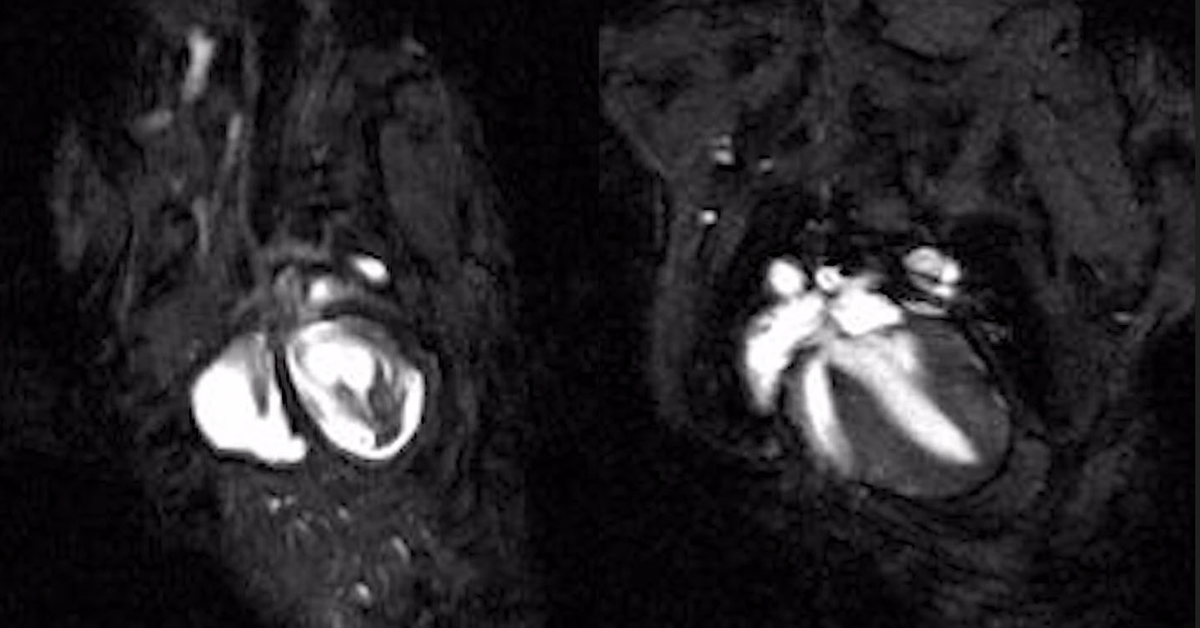New gene discovery revolutionizes anxiety and depression treatment
Though our stress response evolved to keep us safe, too much of it—especially when it lasts too long—can cause serious mental health problems.

Researchers have discovered that the Tob gene plays a key role in regulating how the brain responds to stress, fear, and depression. (CREDIT: CC BY-SA 4.0)
Stress touches nearly every part of life. It shapes how we feel, think, and even how our bodies react. Though our stress response evolved to keep us safe, too much of it—especially when it lasts too long—can cause serious mental health problems. Depression and PTSD are just two examples. Around half of all adults will go through something traumatic in their lives, making it urgent to better understand how we cope.
Inside the brain, the stress response plays out across many systems. It’s not just about one region firing up; it’s a networked event. Regions that handle memory, emotion, and decision-making—the hippocampus, amygdala, prefrontal cortex, and hypothalamus—work together to respond and adapt.
When this system breaks down, the effects can be severe. People might experience overwhelming fear, constant anxiety, or symptoms of depression. Tools like fMRI have helped scientists map these patterns, especially in the hippocampus and a region called the ventromedial prefrontal cortex, both crucial in controlling emotional reactions.
But stress doesn’t only change how the brain looks or behaves—it also reshapes it at the molecular level. One major player is the HPA axis, which tells the body how to react under pressure. Hormones get released, and inside cells, stress sparks rapid changes in which genes are turned on or off.
Some of these changes offer short-term protection. When stress hits, certain genes kick into gear almost instantly. One of these, EGR1, has been tied to these early responses, helping the brain deal with sudden challenges. But we still don’t fully grasp how such genes work together, especially within the hippocampus, to regulate mental health.
That gap has pushed researchers to look for new genetic pieces of the puzzle. One promising candidate is a gene known as Tob. It has caught scientists’ attention for its possible role in building resilience—the ability to bounce back from stress.
Tob isn’t a recent discovery. It first appeared in scientific literature back in 1996, when a team in Japan identified it. What makes it stand out is its quick reaction to stress. It belongs to a group called immediate-early genes, which flip on almost the moment a neuron is activated.
Its name has a story, too. “Tob” comes from the Japanese word tobu, meaning “to jump” or “to fly.” The name fits. When stress hits, levels of the Tob protein jump fast. This burst is thought to help the brain adjust in the moment.
Related Stories
Breakthrough Research on Tob’s Role in Stress Resilience
Recent work by the Okinawa Institute of Science and Technology (OIST) has uncovered how Tob influences emotional regulation. "The presence of the gene helps with stress resilience," explained Dr. Mohieldin Youssef, who collaborated with Professor Tadashi Yamamoto's team on the study. "If it's removed, there’s an increase in depression, fear, and anxiety."
Experiments with mice exposed to stress showed elevated Tob protein levels. However, mice genetically modified to lack the Tob gene exhibited stark behavioral changes. These animals displayed heightened depression, fear, and anxiety. In a classic "bucket of water" test, normal mice swam actively to escape, while Tob-deficient mice floated passively, a behavior associated with despair.
Additionally, Tob-deficient mice struggled to adapt to repetitive stressors. While typical mice learn to recognize non-threatening environments after repeated exposure, the Tob-deficient group remained paralyzed by fear, suggesting impaired adaptive responses.
Neuroimaging studies further highlighted Tob’s role in stress resilience. MRI scans revealed disrupted communication between the hippocampus and prefrontal cortex in mice lacking the gene. These regions are critical for processing fear and managing emotional regulation.
Focusing on the hippocampus, researchers injected the Tob gene into Tob-deficient mice. This intervention restored normal fear and depression responses but did not affect anxiety. Conversely, mice engineered to lack Tob specifically in hippocampal cells exhibited elevated fear and depression but maintained normal anxiety levels.
"We’ve concluded that the Tob gene within the hippocampus suppresses fear and depression," noted Dr. Youssef. "But the suppression of anxiety must be regulated by another part of the brain."
Molecular analyses provided further insights. Stress-induced imbalances in neuronal excitation and inhibition were observed in Tob-deficient mice. Additionally, the absence of Tob triggered a cascade of genetic and protein-level changes, reinforcing its extensive influence on neuronal function.
Broader Implications for Mental Health
The study, published in Translational Psychiatry, suggests that Tob’s role extends beyond theoretical genetics. The gene’s ability to modulate fear and depression positions it as a potential target for psychiatric interventions. "Uncovering this role of the Tob gene in fear, depression, and anxiety could have vast implications for developing therapeutics for psychiatric stress," said Dr. Youssef.
Tob’s protective mechanisms are not limited to psychological stress. Previous research demonstrated its role in cellular stress responses. Tob regulates DNA repair processes, protects cells from oxidative damage, and halts apoptosis under stress conditions. These findings connect Tob’s functions at cellular and molecular levels, suggesting a universal stress-protective role.
This groundbreaking research opens new avenues for understanding the genetic underpinnings of stress resilience. By unraveling Tob’s role in brain circuitry, scientists may develop novel therapies to mitigate the effects of stress-related disorders.
The study’s findings provide a beacon of hope for those grappling with psychological stress, highlighting the profound connection between genetics and mental health.
Note: Materials provided above by The Brighter Side of News. Content may be edited for style and length.
Like these kind of feel good stories? Get The Brighter Side of News' newsletter.



